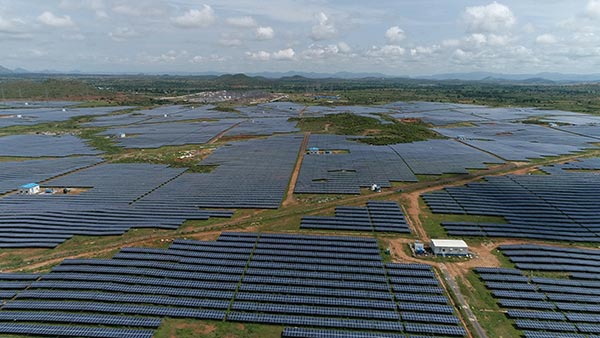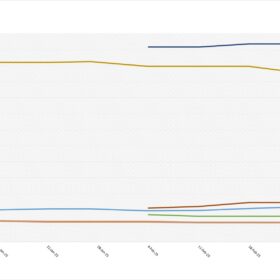Integrated power company Tata Power has announced today it has received a Letter of Award from Gujarat Urja Vikas Nigam Limited (GUVNL) to develop a 60 MW solar project in the state of Gujarat.
The power generated from this project shall be supplied to GUVNL under a long-term power purchase agreement (PPA) for 25 years from the scheduled commercial operation date.
The Company has won this capacity at an INR 2.20/kWh tariff in a 500 MW tender floated by GUVNL in January 2021. The project has to be commissioned within 18 months from the date of PPA execution.
As per the tender document, the bidders selected by GUVNL shall set up solar power projects, including the transmission network up to the delivery point. The minimum project capacity shall be 25 MW.
With this award, Tata Power’s cumulative solar capacity under development in Gujarat would be 580 MW.
The plant is expected to generate about 156 million units of electricity per year and annually offset approximately 156 million Kg of CO2.
Tata Power’s renewable capacity will increase to 4,007 MW, out of which 2,687 MW is operational and 1,320 MW (including 60 MW won under this PPA) under implementation.
This content is protected by copyright and may not be reused. If you want to cooperate with us and would like to reuse some of our content, please contact: editors@pv-magazine.com.









1 comment
By submitting this form you agree to pv magazine using your data for the purposes of publishing your comment.
Your personal data will only be disclosed or otherwise transmitted to third parties for the purposes of spam filtering or if this is necessary for technical maintenance of the website. Any other transfer to third parties will not take place unless this is justified on the basis of applicable data protection regulations or if pv magazine is legally obliged to do so.
You may revoke this consent at any time with effect for the future, in which case your personal data will be deleted immediately. Otherwise, your data will be deleted if pv magazine has processed your request or the purpose of data storage is fulfilled.
Further information on data privacy can be found in our Data Protection Policy.